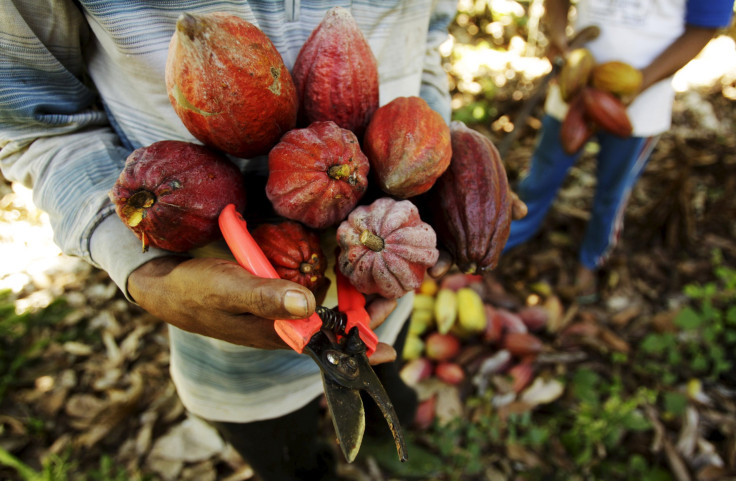El Niño 2015 Could Make Food More Expensive, Especially Coffee, Chocolate And Rice, Experts Warn

The prices of coffee, chocolate, sugar and other staples are likely to rise this year with the advent of El Niño, a weather event with global consequences, scientists have warned. As the phenomenon sets in this year, some have predicted that the prices of some foods could as much as double.
During an El Niño event, waters in the Equatorial Pacific Ocean become unusually warm as trade winds die down, disrupting weather patterns around the world. Heavy rains and flooding in the southern U.S. and parts of Latin America, along with droughts in Australia and Asia, are among its repercussions. It's not to be confused with its counterpart La Niña, where the same waters of the Pacific are abnormally cold.
This year, the El Niño event could be anywhere from moderate to strong, scientists predict. As rice farmers in the southern Philippines and soybean growers in India pray for more rain in what promises to be a relative dry monsoon season, the southern U.S. is already bracing for heavy rains, with downpours drenching the state of Texas.
The price of coffee could increase by 107 percent, while soya beans could rise by nearly 37 percent, the Times reported, although others said the average increase in such staples typically ranged from 5 to 10 percent during El Niño, the BBC reported. Banana, sugarcane and cocoa crops could also be affected.
"Most El Niños historically have had a global impact on food prices," Nick Klingaman, a climate researcher at the University of Reading, told the BBC. If the phenomenon is strong this year, it could "disrupt global food markets," he added.
In 2009, El Niño led to a devastating drought in India and destroyed crop production throughout Asia, leading to a spike in food prices, Reuters reported.
© Copyright IBTimes 2025. All rights reserved.






















